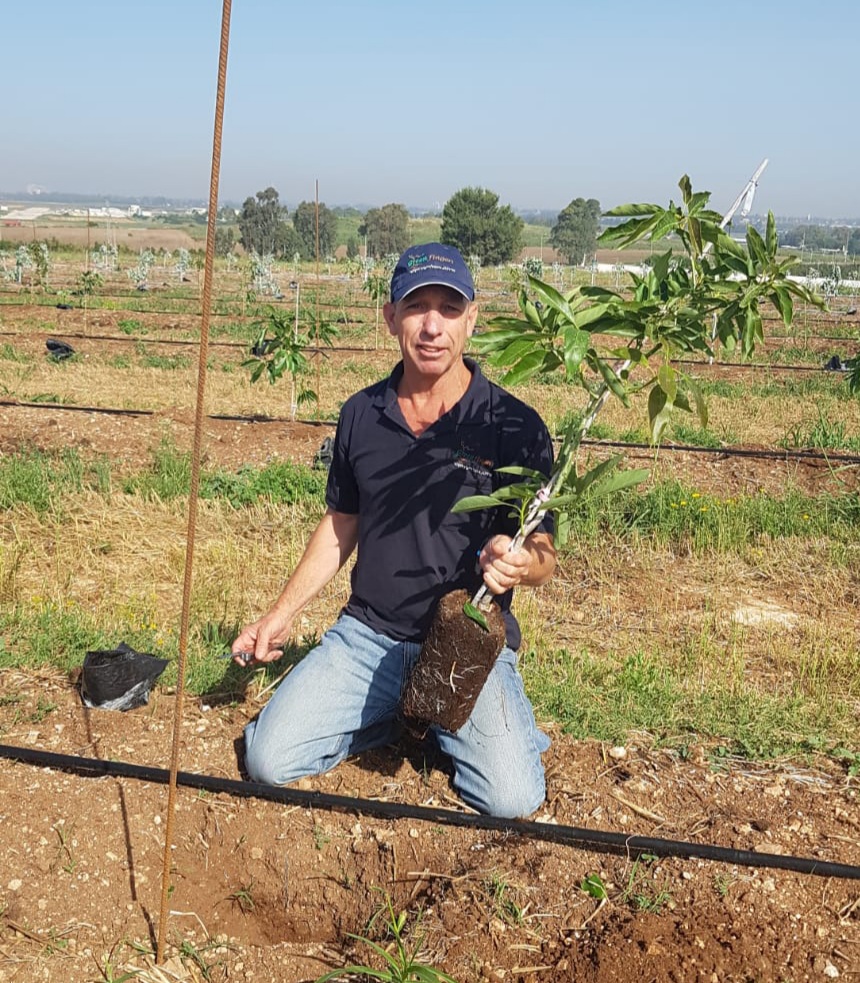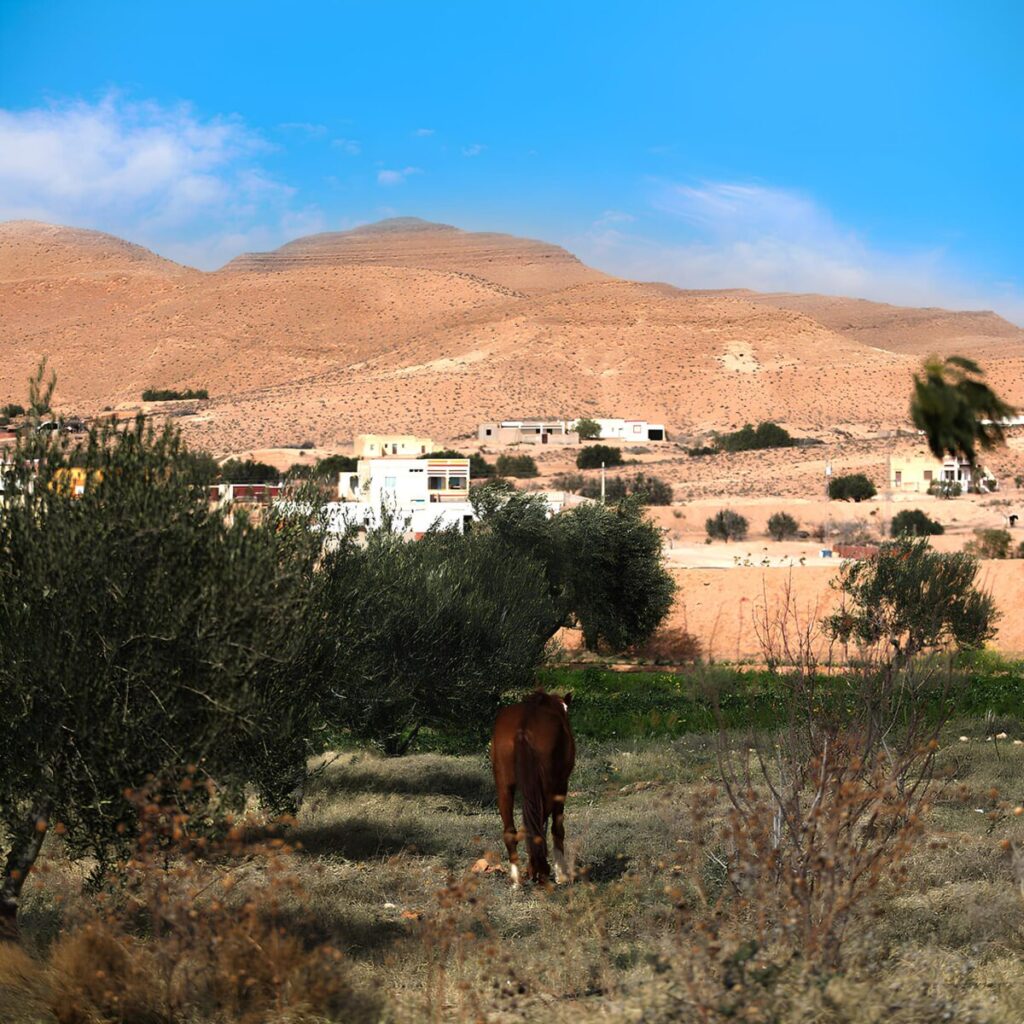In southern Italy, at the edge of the Tunisian desert or in Israeli orchards, farmers face the same equation: produce without water, or almost. Between water collapse and ecological transition, they are experimenting with other ways of farming, more frugal, more local, sometimes high-tech. Three territories, three solutions, one common climate challenge.
In the Apulia region, agriculture struggles to adapt to climate change: Valentina Saini - Italy
Always more avocados by mastering land and water: Caroline Haïat - Israel
Drought, how a farmer is reviving an oasis: Lilia Blaise - Tunisia
In Apulia, Italy, the alert has been raised: “The region is thirsty”, warns the main farmers' organization in the country, Coldiretti. The reservoirs are empty, irrigation systems are out of service, and the agricultural season struggles to start. This is not an exceptional episode: water scarcity has become structural. Like many Mediterranean areas, the region sees its soils drying out, its crops declining. In the face of this challenge, some are organizing. In Italy, Tunisia, and Israel, farmers are experimenting with solutions. Different in their means, they nonetheless pursue the same goal: to continue farming even as the soils become increasingly parched.
In Italy, the soil adapts or dies
Apulia produces the majority of Italy's olive oil, durum wheat for pasta, and tomatoes for sauces. But 57% of its agricultural land is now threatened by desertification. The climate, historically dry, has become hostile. Rainfall, already rare (500 to 700 mm per year), is even scarcer. And when it falls, it does so violently, with no possibility of retention: 89% of the water evaporates, due to a lack of suitable infrastructure.
There are pathways available. The Italian research center CREA recommends restoring wetlands, true natural sponges. Some farmers are installing micro-reservoirs to capture spring rains and irrigate in the summer. Others enrich their soils with organic matter so that they retain water longer. This logic of regenerative agriculture is becoming essential. As Paolo Tarolli, a hydraulic engineering professor at the University of Padua, reminds us: “A soil rich in organic matter needs less irrigation. It’s a matter of survival.”
Even waste becomes a resource. Olive mills can now reuse vegetation waters year-round – an organic liquid rich in phosphorus and potassium – to nourish the soils. A form of circular economy at the agricultural scale.
Israel, high-tech in service of the avocado
More than 2000 kilometers away, Israel has tackled the problem head-on… and with innovations. The country has become a giant in avocado production. In twenty years, the cultivated area has tripled, reaching 14,300 hectares. In 2024, production surged to 230,000 tons, a record.
This fruit, originally from Mexico, adapts perfectly to the Israeli climate: it withstands heat, can remain on the tree for several days without deteriorating, and lends itself to a rational management of water. Drip irrigation, invented here, allows for millimeter precision. Zero waste. Zero excess. In the Negev desert, this changes everything.
“Innovation is key,” summarizes Shahar Goldberg, president of the Israeli avocado industry. “We have little water, but we know how to use it. No chemical pesticides, but auxiliary insects. No overproduction, but a constant search for suitable varieties.”
The impact is both economic and ecological. Avocado farming has revitalized rural areas, created jobs, structured organic supply chains (10% of production is certified), and allowed for an agricultural reclaiming of certain territories. Amid the climate crisis, Israel exports 55% of its production to Europe, the United States, and Asia.

Tunisia: an oasis as a model
Radouane Tiss, on the other hand, did not rely on technology. In Oued El-Khil, in southern Tunisia, this former geography teacher took over the family oasis. A deserted land, battered by the wind, deprived of rain for seven years. On three hectares, he experiments with permaculture, in harmony with his environment.
“I learned everything on the job. Tutorials, training, observation. Here, everything had to be rebuilt.” No monoculture: thousands of trees coexist to recreate biodiversity. The shade of the palm trees protects the soil, limits evaporation, and fosters a microclimate. Water is collected via majels, traditional cisterns installed on rooftops. The eco-domes that host tourists are built with local materials, without air conditioning.
Radouane is also testing syntropic agriculture, a still rare technique, where the arrangement of plants recreates natural humidity in the soil. The goal is clear: to gradually do without drip irrigation, which is too dependent on a fragile electrical system. “I want to show that other models are possible. Not in twenty years, now.”
Three visions, a common future
Each in their own way, these territories are charting a different path. They prove that it is possible to farm differently, by reducing dependence on water, rethinking natural cycles, and adapting to an increasingly unpredictable climate. Apulia repairs, Israel optimizes, Tunisia regenerates.
Nothing is perfect. Everywhere, resources are lacking. Political decisions are slow to come. But the pioneers are here. They show that resilience is not an empty word. It is written in the fields, orchards, and oases. It is experimented with, it is passed on.
Tomorrow, others will need to draw inspiration from these experiences. Because what is happening in these three regions is not marginal. It is already our future.

Featured image: Drought is becoming structural throughout the Mediterranean© 22-Med
Indexing: Library of Mediterranean Knowledge
Agriculture and climate resilience
Valentina Séni – Caroline Haïat – Lilia Blaise
22-med
July 21, 2025
• In the Italian Apulia region, drought is becoming structural and threatens 57% of agricultural land.
• In Israel, avocado farming relies on water-saving innovations and no chemical pesticides.
• In Tunisia, a farmer is reviving an oasis through permaculture and syntropic agriculture.
• Three territories, three strategies: restoring wetlands, optimizing irrigation, regenerating soils.
• In the face of the water crisis, local agricultural models are opening concrete adaptation pathways to climate change.
Apulia (Italy), Negev (Israel), Oued El-Khil (Tunisia)
Paolo Tarolli, Shahar Goldberg, Radouane Tiss
#agriculture, #climate, #water, #resilience, #drought, #permaculture, #irrigation, #mediterranean, #ecological transition
